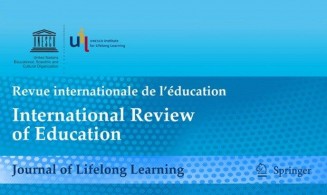

Reclaiming a future that has not yet been: The Faure report, UNESCO’s humanism and the need for the emancipation of education
ire_0.jpg

Close to 50 years after UNESCO’s publication of Learning to be: The world of education today and tomorrow, Gert Biesta provides an assessment of this seminal report, known as ‘the Faure report’, in an article just published by the International Review of Education – Journal of Lifelong Learning. In the paper “Reclaiming a future that has not yet been: The Faure report, UNESCO’s humanism and the need for the emancipation of education”, Biesta characterises the educational vision of the Faure report as humanistic and democratic and highlights its emphasis on the need for educational provision throughout the life-course.
Biesta demonstrates how the right to education has, over time, been transformed into a duty to learn. Moreover, this duty has been strongly tied to economic purposes, particularly the individual’s duty to remain employable in a fast-changing labour market.
Rather than suggesting that in 1972 Edgar Faure and his International Commission on the Development of Education set a particular agenda for education which has meanwhile been replaced by an altogether different agenda, Biesta suggests a reading of the report which understands it as making a case for a particular relationship between education and society, namely one in which the integrity of education itself is acknowledged and education is not reduced to a mere instrument for delivering particular agendas.
Looking back at the report five decades later, Biesta argues that it provides a strong argument for the emancipation of education itself, and that this argument is still needed in the world of today.
Read the full article online ‘Reclaiming a future that has not yet been: The Faure report, UNESCO’s humanism and the need for the emancipation of education’


